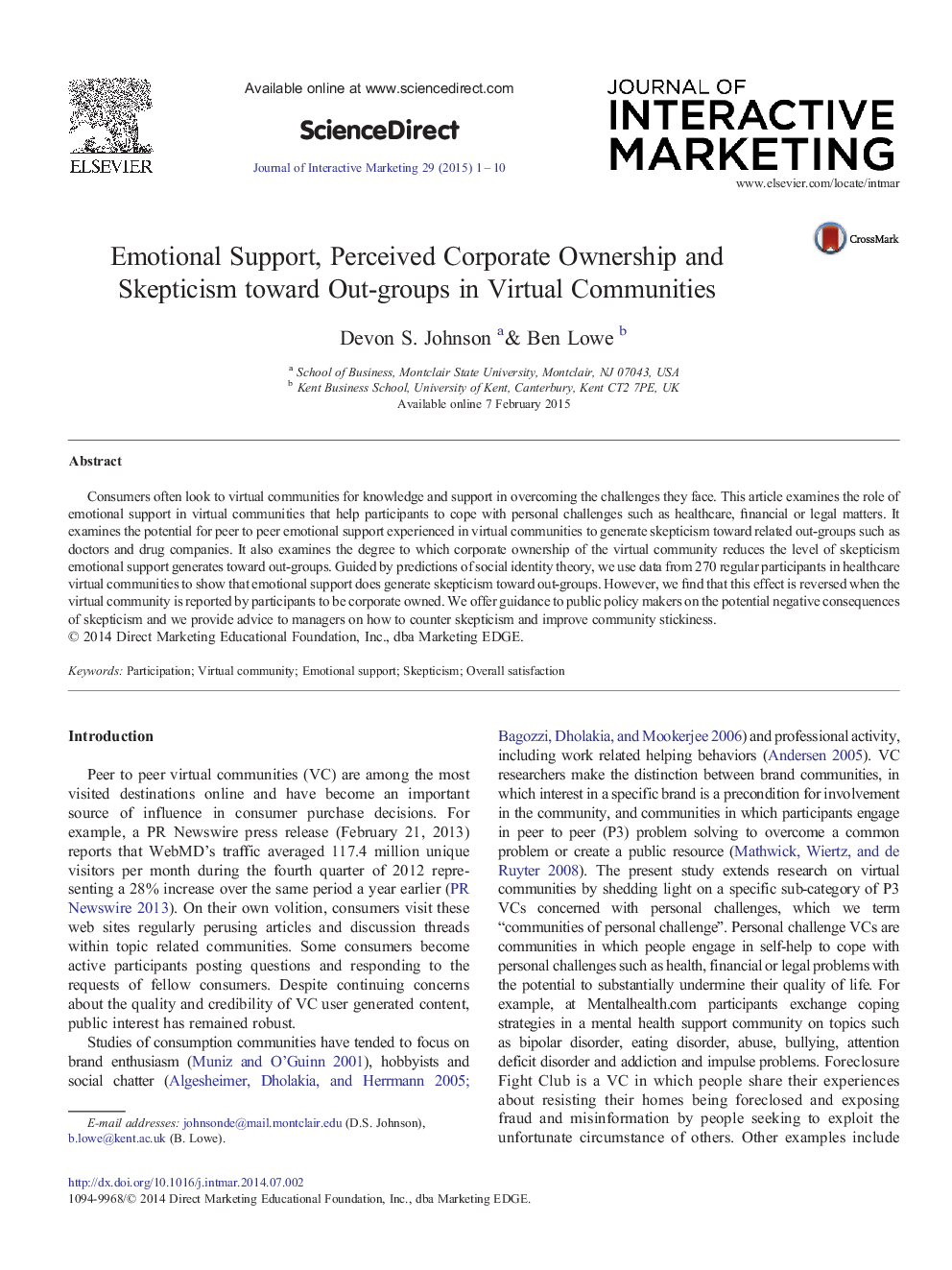| Article ID | Journal | Published Year | Pages | File Type |
|---|---|---|---|---|
| 886014 | Journal of Interactive Marketing | 2015 | 10 Pages |
•A survey of consumers engaged in healthcare virtual communities was conducted.•Finding: emotional support increases skepticism toward doctors and drug companies.•Finding: corporate ownership reduces skepticism generated toward doctors.•Recommend: Managers take actions to reduce negative effects of skepticism.
Consumers often look to virtual communities for knowledge and support in overcoming the challenges they face. This article examines the role of emotional support in virtual communities that help participants to cope with personal challenges such as healthcare, financial or legal matters. It examines the potential for peer to peer emotional support experienced in virtual communities to generate skepticism toward related out-groups such as doctors and drug companies. It also examines the degree to which corporate ownership of the virtual community reduces the level of skepticism emotional support generates toward out-groups. Guided by predictions of social identity theory, we use data from 270 regular participants in healthcare virtual communities to show that emotional support does generate skepticism toward out-groups. However, we find that this effect is reversed when the virtual community is reported by participants to be corporate owned. We offer guidance to public policy makers on the potential negative consequences of skepticism and we provide advice to managers on how to counter skepticism and improve community stickiness.
